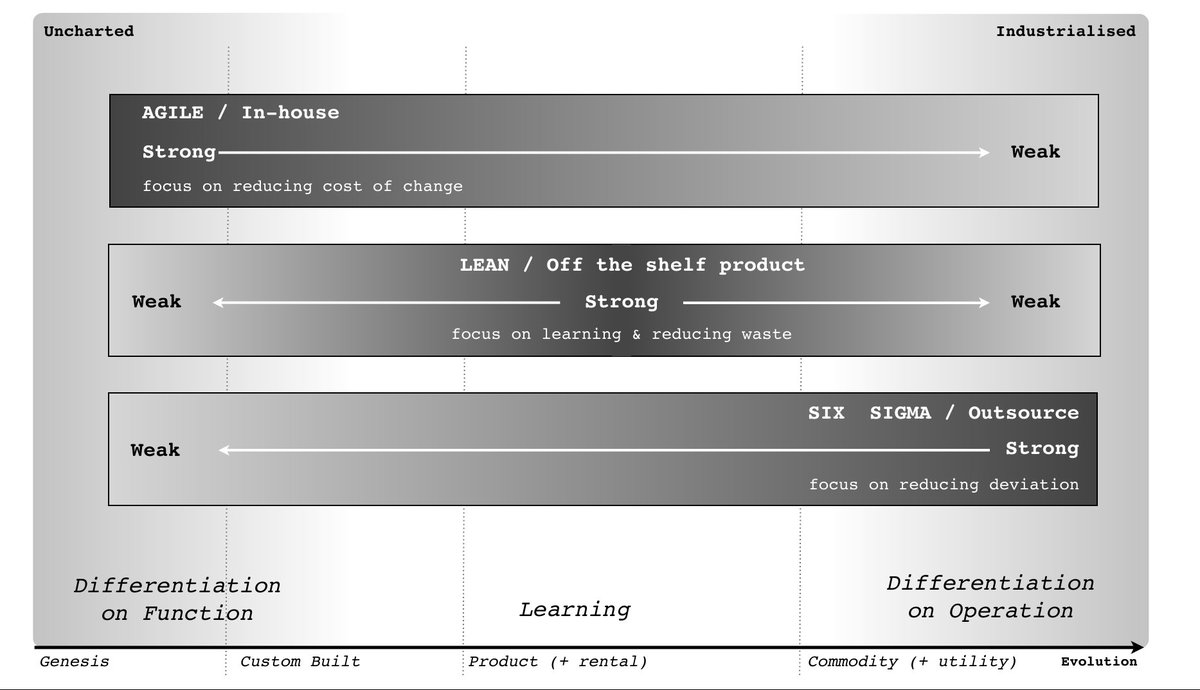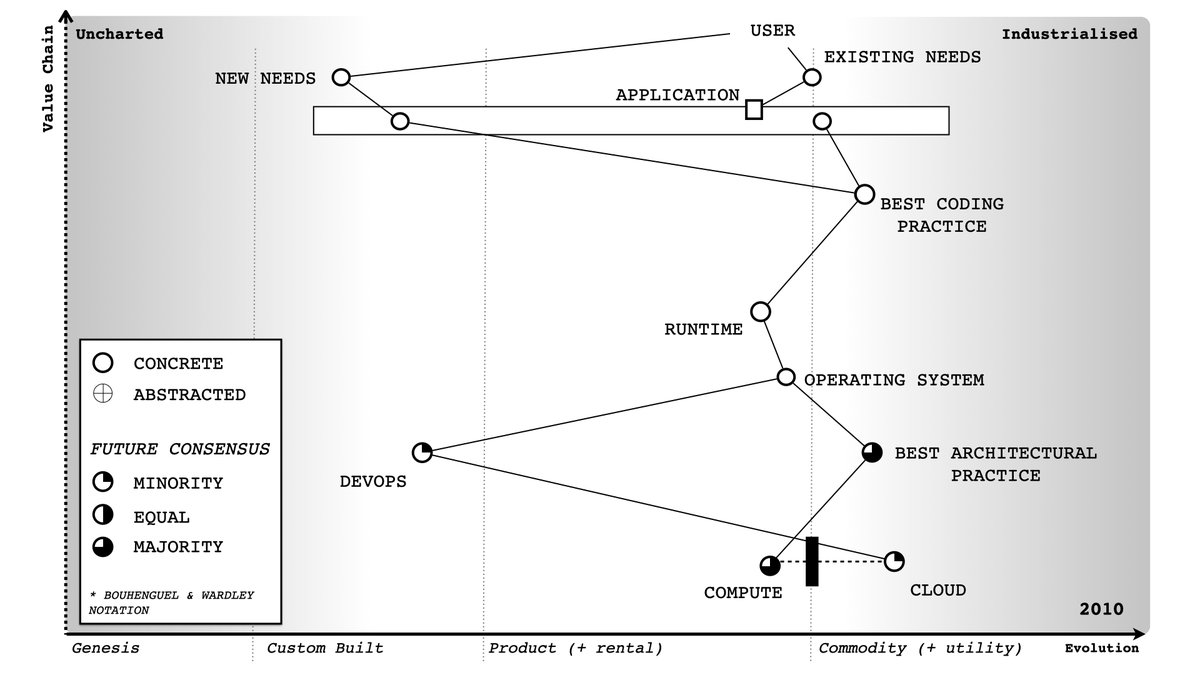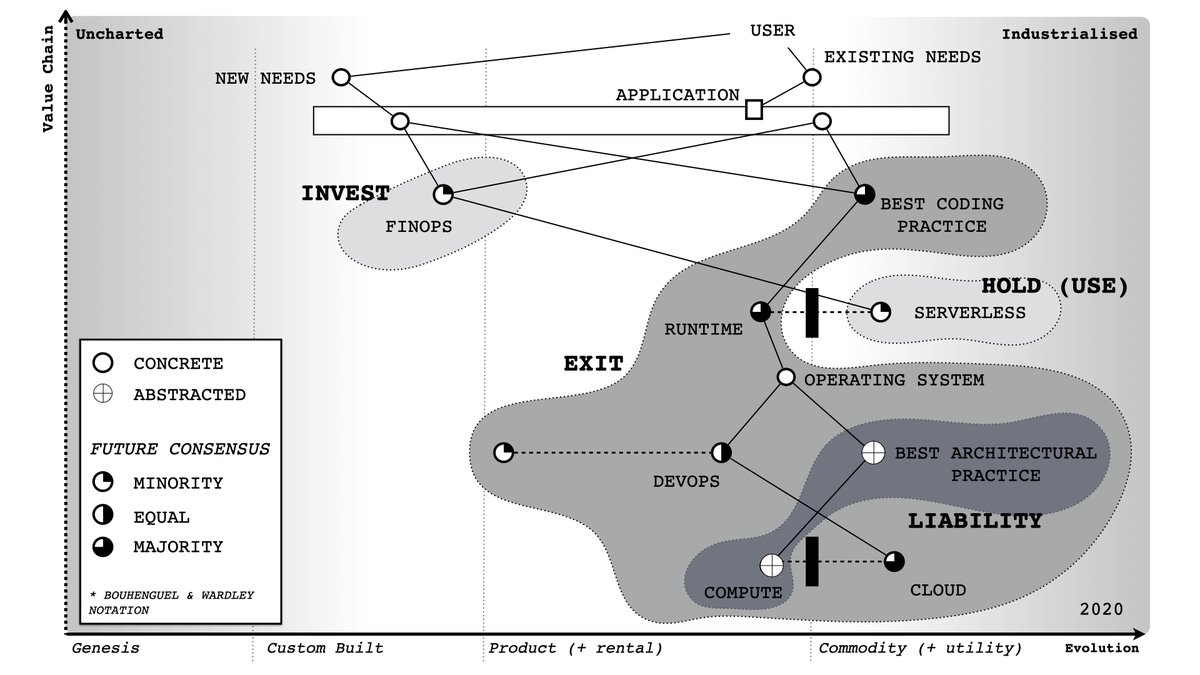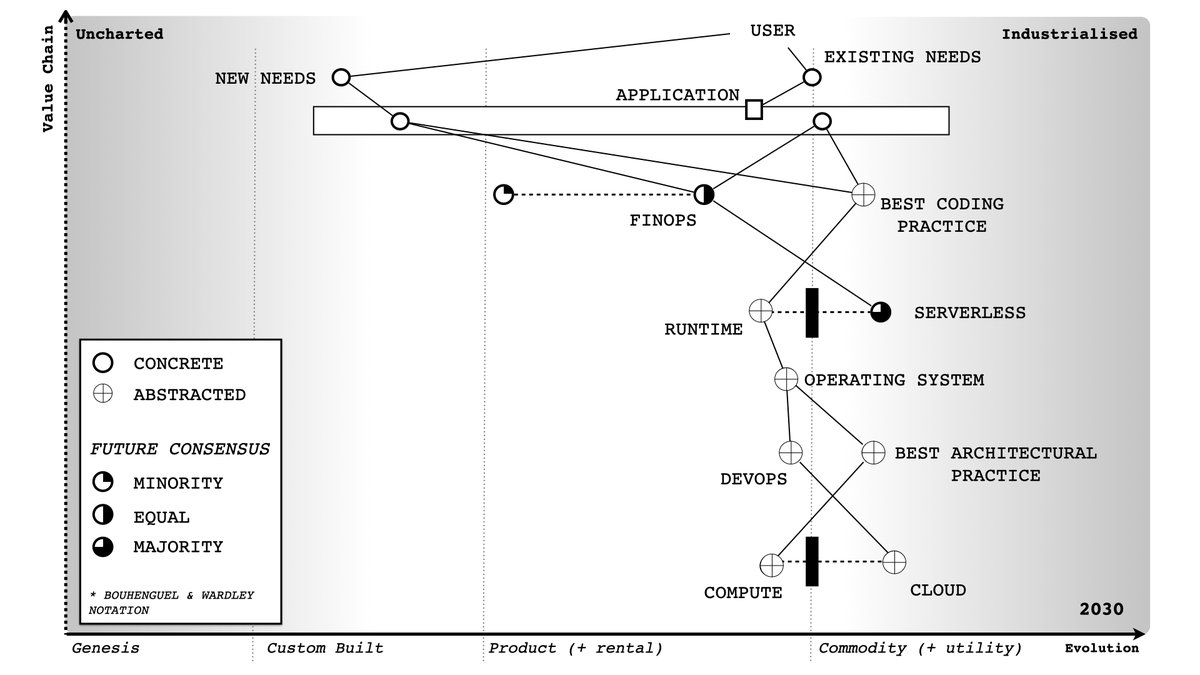
X : The car you drive is a deathtrap?Me : No. The car I used to drive had problems. I tend to use things, repair them and keep them going long beyond where they should. I'm not very good with cars, so I don't do that anymore. My car is 7 years old, so it's almost brand new.
X : Do you do that with everything?
Me : Three major decision points for me in buying any good are 1) environmental cost 2) how easy to repair 3) size and history of market in aftersales components.
X : What about extended warranty?
Me : I tend to look at the aftersales market.
Me : Three major decision points for me in buying any good are 1) environmental cost 2) how easy to repair 3) size and history of market in aftersales components.
X : What about extended warranty?
Me : I tend to look at the aftersales market.
X : What if it's something new?
Me : I look at the history of the company in providing aftersales components for repair.
X : If the company is new?
Me : Then I tend to assume it will break, I might not be able to repair it easily and the company will disappear.
Me : I look at the history of the company in providing aftersales components for repair.
X : If the company is new?
Me : Then I tend to assume it will break, I might not be able to repair it easily and the company will disappear.
X : So, extended warranty?
Me : No. I tend to look at simplicity i.e. is this a thing that I could easily replace or repair even if there was no market or company i.e. does it use standardised components. If not, then it's either a status / whim buy or I look for something else.
Me : No. I tend to look at simplicity i.e. is this a thing that I could easily replace or repair even if there was no market or company i.e. does it use standardised components. If not, then it's either a status / whim buy or I look for something else.
X : Cloud?
Me : A utility service not a product.
X : So?
Me : It's more evolved. Different measures apply. What I'm focused on is fungibility i.e. can I replace the thing with another thing.
X : Different providers?
Me : ... in a idealised market but not necessary.
Me : A utility service not a product.
X : So?
Me : It's more evolved. Different measures apply. What I'm focused on is fungibility i.e. can I replace the thing with another thing.
X : Different providers?
Me : ... in a idealised market but not necessary.
X : Explain?
Me : It's more important that I can replace one EC2 instance with another EC2 instance. Preferably over different regions / locations. Ideally over different providers. But the last bit isn't required, it's a nice to have and not worth it if it increases complexity.
Me : It's more important that I can replace one EC2 instance with another EC2 instance. Preferably over different regions / locations. Ideally over different providers. But the last bit isn't required, it's a nice to have and not worth it if it increases complexity.

X : Your purchasing decisions are different for products and utility services?
Me : Purchasing, finance, project method, risk choices all vary with context. Most things do. If you're looking for the one size fits all ... well, you're consultancy fodder doomed to disappointment.
Me : Purchasing, finance, project method, risk choices all vary with context. Most things do. If you're looking for the one size fits all ... well, you're consultancy fodder doomed to disappointment.

i.e. take the car, as it evolves to more of a utility then very few will end up owning self driving cars. In the end we will pay for them on a utility basis with status recreated by other means ... your purchasing decisions shouldn't be the same as they were two decades ago.
X : But the majority of the industry ...
Me : ... will be wrong. The majority view of any industry in a time of transition caused by evolution is wrong, it's always wrong.
X : Why?
Me : Ok, take a map. Look at the bottom axis of evolution ...
Me : ... will be wrong. The majority view of any industry in a time of transition caused by evolution is wrong, it's always wrong.
X : Why?
Me : Ok, take a map. Look at the bottom axis of evolution ...

... now a virus evolves but it also diffuses. Same with anything in a competitive system. Things evolve through multiple waves of diffusion of ever improving instances of the thing. So when you look at the evolution axis ... 

.... the majority could be on one diffusion curve (say a product) but the minority can be on the more evolved curve (say a utility) ... 

... hence in 2010, the majortiy were still focused on compute as product, past practices etc whilst the minority were focused on the more evolved utility, co-evolved practices. The majority would tell you a future (VCE, private clouds) that was precisely ... WRONG ... 

... no different today. The majority will probably tell you a future of DevOps, Kubernetes and Infrastructure Cloud. The minority will tell you a future of serverless and co-evolved practice. Once again the majortiy will be precisely ... WRONG ... this is what you should do ... 

i.e. we know what the future will be. It's right in front of us.
X : But this survey of CIOs says ...
Me : ... nothing of use. It'll be aggregated majority view which will be precisely wrong. See Simpson's paradox.
X : But this survey of CIOs says ...
Me : ... nothing of use. It'll be aggregated majority view which will be precisely wrong. See Simpson's paradox.

This is why I run population studies and look for phenotypic changes in companies. In 2010, the next generation vs traditional looked like this .,.. and yes, the response to the "next gen" from traditional was - "just startups", "no major company would look like this" etc ... 

... of course, today, 11 years later then you can't help but fall over "major companies" trying to talk ecosystem, driven by data, cell based structures, scale out capacity, continuous deployment etc etc .,..
... today, the traditional vs "next generation" look like this. I know, I know ... "just startups", "no major company would look like this" ... just give it a decade. 

X : What will happen in a decade?
Me : Well, either I'll be publishing a new traditional vs next generation phentotype comparison whist "major companies" fall over themselves to be like the last next generation (see above) ... OR ... I will be wrong and will finally shutup.
Me : Well, either I'll be publishing a new traditional vs next generation phentotype comparison whist "major companies" fall over themselves to be like the last next generation (see above) ... OR ... I will be wrong and will finally shutup.
X : And if you are right, you will be intolerable?
Me : Oh, you bet. Either I'm the plonker on situational awareness or I get to call people who don't map plonkers. It'll be as simple as that.
Me : Oh, you bet. Either I'm the plonker on situational awareness or I get to call people who don't map plonkers. It'll be as simple as that.
X : You could be wrong!
Me : Always. But I'm betting that situational awareness does actually matter. We will know soon enough .... it's only a decade, a heartbeat in the scheme of things. I'd rather spend 25 years of my life arguing it does and be wrong than just sit on a fence.
Me : Always. But I'm betting that situational awareness does actually matter. We will know soon enough .... it's only a decade, a heartbeat in the scheme of things. I'd rather spend 25 years of my life arguing it does and be wrong than just sit on a fence.
X : In ten years we will know?
Me : Well, in ten years the fun really starts. If mapping continues to grow and this work hits the mark again, this is when I expect the serious pushback. At the moment, it's mostly seen as something a few erratic people do and not a threat.
Me : Well, in ten years the fun really starts. If mapping continues to grow and this work hits the mark again, this is when I expect the serious pushback. At the moment, it's mostly seen as something a few erratic people do and not a threat.
X : You wouldn't really call people who don't map ,... plonkers?
Me : Of course not ... well ... unless they work for large US management consultancy firms. I can't stand them.
Me : Of course not ... well ... unless they work for large US management consultancy firms. I can't stand them.
X : Why?
Me : Long list of reasons including promoting concepts like planned obsolescence as a means of making a "sustainable" business model which in turn means I have to put so much effort into finding things that I can repair when I purchase goods.
Me : Long list of reasons including promoting concepts like planned obsolescence as a means of making a "sustainable" business model which in turn means I have to put so much effort into finding things that I can repair when I purchase goods.
X : Surveys of CIOs will be wrong?
Me : You've got to know how to read them and the key is "a time of transition caused by evolution".
X : Explain?
Me : Ok, take 100 CIOs. Run a survey and take the aggregated opinion. If what you're talking about is ...
Me : You've got to know how to read them and the key is "a time of transition caused by evolution".
X : Explain?
Me : Ok, take 100 CIOs. Run a survey and take the aggregated opinion. If what you're talking about is ...
... product vs product substitution (i.e. is this database better than that database) then the aggregated opinion will generally give you the correct answer ... BUT ...
... if what you're talking about is not within stages (product to product) but between stages (product to utility) then at the time of that transition (i.e. future is data centres vs future is cloud circa 2007) the aggregated opinion will generally give you the wrong answer.
So, when you read a CIO survey which consists of aggregated opinion then go through each question, mapping it where possible and asking yourself whether we're talking about "within" (i.e. product vs product) or "between" (i.e. product to utility) stages? ...
Timing has a role (i.e. the aggregated answer is wrong for the transition between stages until such time as the correct answer becomes obvious to all i.e future datacentre vs cloud in 2017) but as a rule of thumb you should reverse the answer of the "between" stages questions.
Of course, this won't work forever ... eventually situational awareness will grow that even CIOs consider how evolved something is ... but for the time being you can use it and know the "majority" opinion is very likely to be on the wrong path.
Which is great fun ... you can sit there going "future is serverless" (i.e. runtime as a utility) in 2015 or "future is cloud" (i.e. infrastructure as a utility) in 2008 and have the majority tell you that you're wrong whilst knowing that time is likely to be your friend.
• • •
Missing some Tweet in this thread? You can try to
force a refresh








